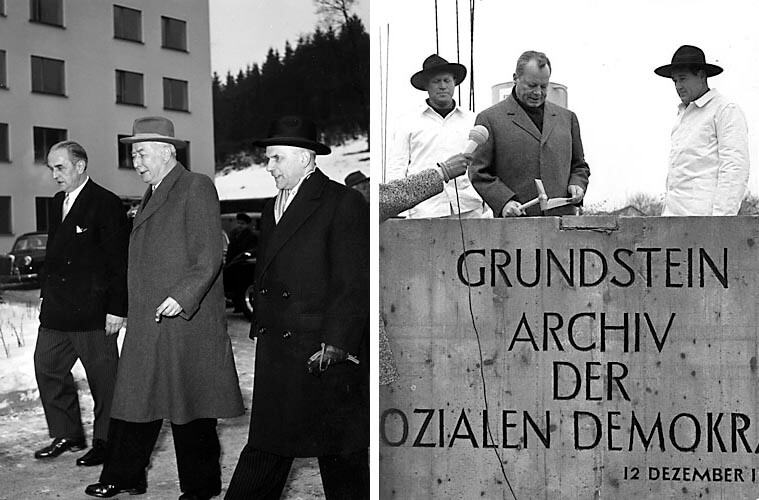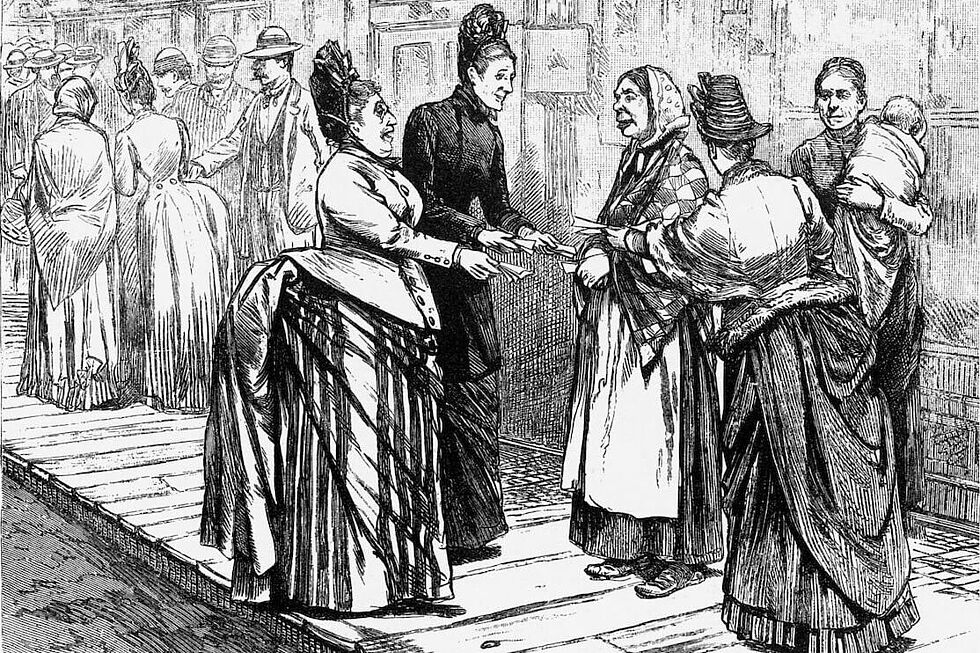Behind the archive stacks

The Archives of Social Democracy in Bonn (Archiv der sozialen Demokratie, or AdsD) is the most important German archive of the history of labour movements. The AdsD is an integral part of the work by Friedrich-Ebert-Stiftung (FES), and also houses the largest photographic archive on the workers' movement and social movements in Europe.
On occasion of the 100th anniversary of women’s suffrage in Germany, the archive organized an exhibition titled "Women: A new awakening", which displays historic posters used for political campaigns to engage women during watershed political changes in 20th-Century Germany.
We spoke to Gabriele Lutterbeck, a long-time staff member of the AdsD who set up the exhibition. The initiative was conceived to bring to the public attention an important collection housed under the special topics section of the photo archive that Lutterbeck oversees in her day-to-day work.
How long have you been working for the AdsD?
I began working at the Friedrich-Ebert-Stiftung in 1978, at first in the area of adult political education. Following the birth of my daughter in 1981, I switched to the AdsD and soon afterwards was assigned to the specific topics collection in the photographic archive. Digitization became a major topic in 1996 and we started to digitize the approximately 4 million photographs of the AdsD collection.
300,000 images have been digitized thus far, making this the largest photographic archive of the workers' movement and other social movements in Europe. The database can be accessed for research (link in German).
Can you tell us a bit about the AdsD? Why is it important for the national and international work of FES and how can people access the materials of the archive?
The AdsD of the FES preserves and presents the unprinted collective memory of social democracy and trade unions as well as all forerunner and related organizations. In addition, it holds the legacies and items of individuals and actors involved in the history of social democracy. Among the collections, in particular the Jupp Darchinger photographic archive is of major importance, offering a visual depiction of the political history of the Federal Republic of Germany in a unique fashion (link in German)
With its Public History Department, the AdsD furthermore takes part in expert debates and public discussions about historical topics that are of importance to the present day. Current examples of this include Karl Marx's 200th birthday in 2018 (link to official website) or 100 years of women's suffrage in Germany in 2018 (link).
The History of Social Democracy portal (link) offers users wide-ranging, visually appealing content on topics surrounding social democracy.
What do you like most about your work at the archive? Which collection do you find most interesting?
What I enjoy about my work in the archive is the variety it offers, and that history is displayed visually, which is personally enriching for me. Topics such as, for example, flight and migration, destruction and reconstruction, recur in cycles, providing an opportunity for useful comparisons. Conflicts, but also the everyday lives of people, are illuminated in minute detail, bringing viewers up close and almost in the flesh to the experiences of actors at the time.
The breadth of topics addressed by the pictures I administrate is enormous. Many illustrate dramatic or negative events of course, as these have always held the interest of the public, but they also include ideals and utopias, propaganda and documents reflecting the special atmosphere of the particular times.
Finally, various photographers are featured here. The photographer Jupp Darchinger warrants special mention. His life work is considered to make him the greatest chronicler of the Wirtschaftswunder (the economic miracle of Germany’s recovery after the Second World War) and the Bonn Republic, offering the Social Democracy Archive a valuable addition (link in German).
The archive organized an exhibition titled Women: A new awakening, which you were in charge of organizing. Can you tell us about it? Why was it organized and what gave the impetus for this?
The exhibition Women: A new awakening [Frauen im Aufbruch] was conceived as a free-of-charge download for our users. It explores campaigns and efforts seeking to involve women politically in the three important democratic watershed political changes in the 20th Century: the introduction of women's suffrage in 1918-1919; mourning and a new beginning 1945-1949; and watershed change and stabilization 1989-1990.

We have noticed that officers in charge of women's affairs often want to show an exhibition in connection with International Women's Day. Because they frequently do not have any budget to do this, we wanted to offer especially this group an inexpensive, uncomplicated political education service. This was the main motive.
The 100th anniversary of women's suffrage in Germany is of course a particularly attractive and symbolic occasion for this exhibition.
International Women's Day falls on 8 March. To all those who are interested in women's rights and their history, which module from the exhibition of the three available would you particularly recommend?
What I find most impressive is all three modules together. Moreover, a flyer and a striking introductory poster were designed by a graphic artist. These elements combine to form a large, wide-ranging exhibition that is truly worth seeing. If one wanted to concentrate on one module this year, I would recommend module 1 as a result of the anniversary. ###
The exhibition "Women: A new awakening", is accessible free of charge, as are accompanying high-resolution downloads of the posters available online (link in German). For more information on the photo archive and other departments visit the official website of the Archives for Social Democracy (link in German).
About FES Connect
Connecting people, in the spirit of social democracy, we source and share content in English from the German and international network of the Friedrich-Ebert-Stiftung.







